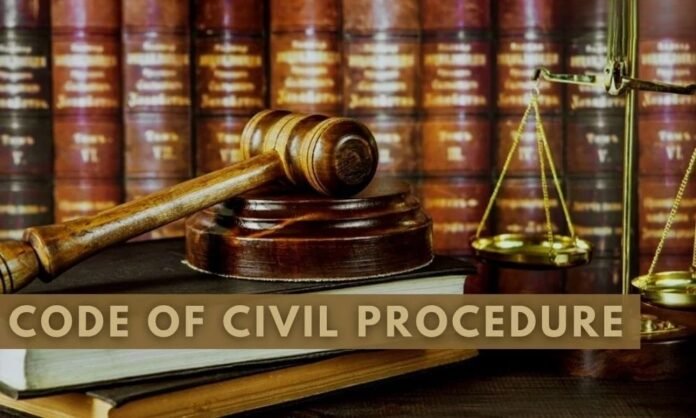Supreme Court holds that Order XLI Rule 4 CPC cannot save joint appeals if a party dies without LR substitution—clarifying abatement safeguards.
Subheading (Intro):
In a key ruling, the Supreme Court explains why Order XLI Rule 4 CPC offers no protection in joint appeals when a party dies without timely substitution, highlighting procedural safeguards under Order XII Rule 3 CPC.
Background and Legal Context
Under Order XLI Rule 4 CPC, litigants may appeal jointly when their arguments are rooted in identical grounds. This rule is usually invoked to streamline appeals—particularly when multiple defendants or appellants wish to challenge a judgment collectively.
However, when one party in a joint appeal is deceased, procedural law requires timely substitution of their legal representatives (LRs) or the appeal risks abatement. Order XII Rule 3 CPC governs this, stating that if an appellant dies and isn’t substituted promptly, the appeal abates and cannot proceed further.
Facts of the Case
In the recent case before the Supreme Court on July 18:
- Multiple defendants/ appellants filed a joint second appeal against an indefeasible decree from the first appellate court.
- During the pendency of this appeal, one defendant passed away.
- None of the surviving appellants moved to substitute that defendant’s LRs in time.
- As a result, the Madhya Pradesh High Court dismissed the appeal as abated under Order XII Rule 3 CPC.
- The appellants contended that Order XLI Rule 4 CPC shielded their joint appeal, enabling survival despite one party’s death.
Supreme Court’s Ruling
The bench—Justices P.S. Narasimha and Manoj Misra—dismissed this contention and held:
- Order XLI Rule 4 CPC applies strictly to the simultaneous challenge of the decree based on common grounds, not to procedural defaults caused by the death of a joint appellant.
- The rule has no retroactive effect to excuse non‑compliance with substitution timelines dictated in Order XII Rule 3 CPC.
- When a joint appeal is filed and one appellant dies, the appeal stands abated unless the LRs are substituted within the window allotted by the Code.
In simple terms, the Court clarified: you cannot rely on the metaphorical “umbrella” of Order XLI Rule 4 CPC to bypass procedural obligations under Order XII Rule 3 CPC.
Analytical Commentary
Why This Matters
- Legal Certainty: The decision reinforces that procedural safeguards—like substitution—are not mere formalities. They ensure that all parties, even those who are deceased, or their successors, are represented.
- Protection for LRs: It emphasizes the rights of legal representatives to have their statutory window to step in and defend the deceased’s interest.
- Consistency with Precedents: The judgment aligns with several Supreme Court rulings noting that failure to make required substitutions results in abatement, regardless of the nature of the appeal — joint or separate.
Implications for Litigants
- Vigilance on Substitution: Advocates must stay alert to the death of any joint appellant and initiate substitution proceedings promptly.
- No Shortcut via Joint Grounds: Even if all defendants share identical grounds of challenge, they cannot bypass substitution timelines.
- Strategic Re‑Filing Risk: Missing the window under Order XII Rule 3 CPC may force a fresh appeal to be filed, resetting time and court fees, and often involving new complications.
Procedural Safeguards Under CPC
| Safeguard | Purpose | Key Takeaway |
|---|---|---|
| Order XII Rule 3 CPC | Mandates substitution of LRs upon appellant’s death | Critical to keep appeals alive |
| Order XLI Rule 4 CPC | Allows collective appeal on common grounds | Not a procedural safe‑harbor |
Legal practitioners and law students should note how these two CPC provisions—often invoked jointly—actually play distinct and non‑interchangeable roles in appeal proceedings.
Related Precedents & Resources
- The Legal Observer has previously analyzed cases involving substitution and abatement. See our detailed breakdown here.
- For guidance on filing substitution applications and deadlines, visit our Legal Helpline: Legal Procedures Guide.
Conclusion
By affirming that Order XLI Rule 4 CPC is no panacea for lapses in substitution, the Supreme Court underscores the necessity of strictly adhering to procedural mandates. For law students and practitioners, this is a pointed reminder: procedure is as vital as substance in ensuring justice and safeguarding rights.
🔗 Watch our detailed explainer on YouTube via The Legal Observer to understand how to file substitution notices posthumously and preserve your appeal. (see channel link above)




